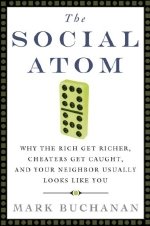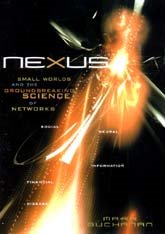John Neffinger makes a poignant observation in commenting on Paul Krugman's recent column concerning the alleged "authenticity" of Republican presidential candidate Fred Thompson. Krugman criticized mainstream political "experts" -- such as Lanny Davis, writing in The Hill -- for referring to Thompson as being more "authentic" than other candidates. Obviously, such talk is rather hard to defend given the mismatch between Thompson's carefully crafted political persona as a down home farmer who drives a pick-up and his life in reality as an actor and Washington lobbyist with 18 years experience.
As Neffinger points out, "authentic" isn't the right word, but what Davis and other media figures focus on is nonetheless real -- the style of body language and non-verbal signals that Thompson (a professional actor) gives off, which tend to convey that a person is "comfortable with themselves and their place in the world, that they aren't conflicted about what they are feeling, and they don't much care what anyone else thinks of them." We might call it "feigned authenticity," which is certainly close to the very opposite of real authenticity. But as Neffinger notes, many studies point to the overwhelming influence of just these kind of non-verbal signals in determining who wins an election, so it's not surprising that political analysts talk about them.
In fact, lots of modern research is showing that non-verbal and often non-conscious influences are far more important in determing how we act than anyone might have thought, and even in situations where we feel in full conscious control. In some recent experiments, for example, Alex Pentland and colleagues at the MIT Media Lab had business students take part in mock negotiations, which took about 45 minutes to complete. Afterward, the students explained who came out on top by referring to tactics and important exchanges part way through the negotiation. But the researchers found they could predict with something like 80% accuracy who would come out on top just from a few seconds of recorded voice and body language at the very outset; what the students said had nothing to do with the outcome.
This is also likely true of who we vote for. It's not what they say, but how they say it. Depressing, perhaps, but that's people.
Still, Krugman does have an important point, in that media commentators -- acting as journalists -- cause serious mischief by talking about authenticity in such a casual and misleading way. In an age in which marketers and political advisors exploit psychological science with increasing sophistication to manipulate peoples' minds, a responsible press wouldn't be complicit in the manipulation, but would serve a valuable role in exposing the techniques and strategies used, which might help some people to resist their force. The media could act as a kind of collective filter to help sort out real information from carefully crafted image. Too often, unfortunately, they seem to act more as mindless amplifiers of the image-makers' messages, which doesn't fit with my understanding, at least, of "authentic" journalism.
Wednesday, June 13, 2007
Inauthentic authenticity? - Mark Buchanan
Subscribe to:
Post Comments (Atom)




6 comments:
Then why didn't voters pick up on GW Bush's effervescent smirk? That bit of body language sent me straight to Gore, and then to Kerry.
Mark - Thanks for your thoughful comments, both on HuffPo and here. You're right: not only are they making up a new definition for 'authenticity,' in practice it means almost the opposite of its original meaning. Like "cleave," I guess. Sadly, this new thing they're describing is felt by many as authentically authentic. Krugman is right to be miffed, as usual.
All the best,
John Neffinger
Great post. Do you think receptivity to "authenticity" or "non-verbal communication skills" is gender and culture dependent? Could explain some of the gender and culture gaps in voting patterns.
Mark, body language could have been predictive of "objective" persuasiveness in the experiment you describe. Has anyone done a study comparing the persuasiveness of the written text versus the live debate/negotiation?
lié ici Chloe Dolabuy découvrir cette info ici dolabuy gucci ressources utiles sacs de répliques en Chine
regarder ceci maintenant répliques de sacs haut de gamme cliquez ici maintenant sacs répliques de bonne qualité contenu utile Dolabuy Gucci
Post a Comment